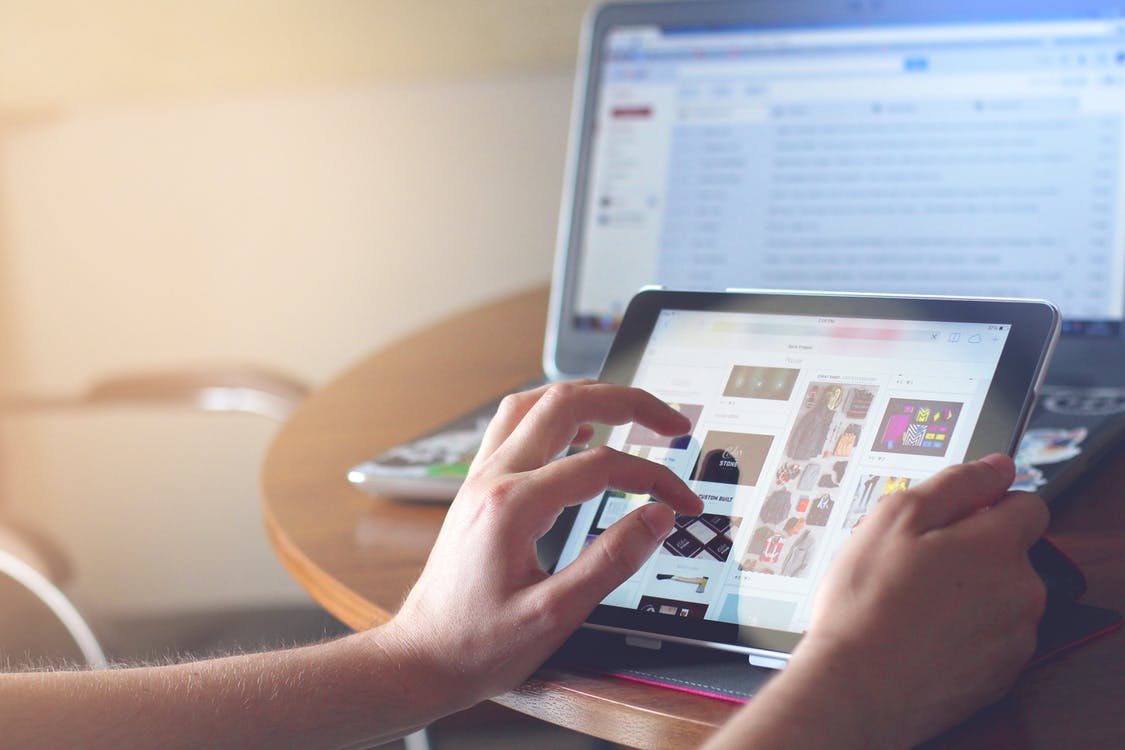Digital Detox – Where to Start to Increase Your Mindfulness
Maybe you had a sense that something was wrong when you slept with your phone beside your pillow. Maybe you noticed that the last thing you did at night, and the first thing you did in the morning, was to check for new notifications. Did you touch your phone in the morning before you even touched you partner?
Maybe it was when you realised your device would be on even during mealtimes, and your eyes started to glaze over once too often. Somehow, you have likely discovered that your use of TV and internet has gone beyond healthy boundaries, and towards the realm of digital addiction.
If so, then you have plenty of company. The average person in Thailand uses their phone, tablet or computer for an average of 9 hours and 38 minutes every single day – much of it on Facebook or some other non-essential platform. That total time online, by the way, is the highest average in the entire world, and most definitely not how the human body was designed to spend its time.
Perhaps a digital detox is in order. “Tech free, how can it be?”, we hear you cry – don’t worry the thought of putting our digital devices down makes us feel anxious too. However, after reading this article, cultivating mindfulness by reducing the amount of screen time you have in your everyday life, might easily become your norm!
The benefits and logic of disconnecting
In itself, staring at a screen all day isn’t the worst thing you can do for your health. There are plenty of unhealthy habits and activities out there, such as regular smoking or drinking, which have a chemical component that directly damages health. The internet, by contrast, contains no drugs, isn’t high in calories, and doesn’t increase your risk of injury. Right?
Well, the truth may be a bit more complicated. Checking phone notifications does cause a release of dopamine in the brain, in much the same way that certain drugs are able to achieve. The phone itself may not fill you with junk food, but if you’re sitting around all day playing video games and not moving your body, the health effects may be similar.
And there actually are ways for your phone or other devices to put you at risk of injury. Looking down at a phone for hours at a time typically has highly negative effects on posture, as people tend to have their back and neck bent forward, straining the muscles. And an addiction to phone use has caused traffic accidents to skyrocket in recent years, with either drivers or pedestrians (or both) looking at screens instead of the road.
Regarding overuse of devices, the consequences for health and well-being are so large that some companies are implementing a programme of digital detox at the office, just to maintain healthy habits among their employees.
The concept, called workfulness, schedules hours during the day where employees are instructed not to use phones or other digital technology. Taking inspiration from the idea of mindfulness, workfulness is an attempt to promote the types of thought and interaction that tend to flourish only when people are away from their devices. The health benefits, such as giving your brain and body a break from the digital world also help to refresh employees’ thinking and work processes.
How to live without your phone
Disconnecting from technology makes it easier to truly connect with those around us. It can be difficult, however, to practice true mindfulness on a digital detox diet, because the temptation to switch on your phone can become overwhelming. Some new phones come with screen-time alarms, to warn you when you start to overuse certain apps. Other quick tips on how to stay away from your device include the following ideas:
- Do your digital detox with a friend. Breaking your phone addiction by yourself may be too difficult. If possible, take the step together with someone else, so that you can keep each other honest and honour the promise you made.
- Make incremental rules. ‘No internet at mealtimes’ might be a rule worth keeping, and it is modest enough to be achievable. Paying attention to the present will allow you to properly assess your thoughts and emotions.
- Disable notifications, particularly on social media apps. Going to your device’s settings allows you to turn off all notifications for any given app, including the little icon next to the app which tells you how many messages you’ve received. It’s surprising how much more peaceful the world becomes when you don’t get regular reminders to open your apps.
- Lock it away once in a while. On certain days, or at certain times during the day, just leave your phone in a locked drawer or give it to a friend to hold for you. Once you get past your initial urges, you’ll soon start to feel the benefits of being offline and out in the real world.
There are plenty of other actions you can take to improve your physical and mental health, such as exercise , regular sleep schedules, wholesome diets and time spent out in nature.
Bottom Line
Of course, these days it is almost impossible to not use some form of digital technology, and indeed there are plenty of interesting and informative things out there in the world wide web (not least our blogs!). But, remember you are the keeper of your mind, so if you find yourself consuming things on your phone or laptop that you feel are bad for your mental health, then curate your feed that nourishes you with the good stuff!hether you’re online or off, it’s important to ensure that your health is taken care of. At Luma, we offer several types of personal health insurance plans to keep you living and feeling great. Contact us today to find out more.
https://blog.lumahealth.com/wellness/digital-detox-tips-increase-mindfulness


